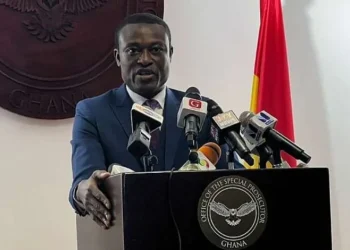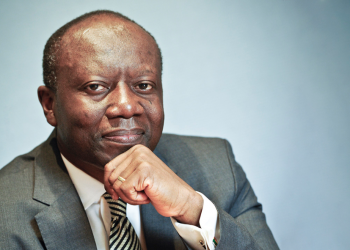Finance Minister Ken Ofori-Atta has outlined and demonstrated that the Akufo-Addo government made great strides and remarkable progress in the years before COVID-19 and the Russia-Ukraine war reversed the progress.
He explained that at the onset of the pandemic and later the Russia-Ukraine war, the gains from over three years of fiscal rectitude were reversed because of efforts to protect lives and livelihoods.
Addressing the Parliamentary Ad-hoc Committee on the censure motion against him, Ofori-Atta pointed out that the Akufo-Addo administration inherited a bad economy but improved all the indicators.
According to him, “it is important to note that through our leadership and commitment to turning around the economy from its state in 2016, we made great strides and remarkable progress in the years before the pandemic, and the records attest to this.”
He added that at the close of 2016, an assessment of the economy revealed a limited fiscal space with a fiscal deficit of 6.5%; a distressed financial sector recording a 17.3% non-performing loan ratio, a derailed IMF-ECF program, and reduced economic output (GDP growth-3.4%).
Also, inflation was 15.4% at the end of 2016; the Monetary Policy rate (interest rate) was 25.5% at the end of December 2016; Limited capital expenditure to Ministries, Departments, and Agencies (MDAs), and ‘Dumsor’ which had decimated local industry and strongly impeded national productivity;
Ofori-Atta said the government doubled economic growth in its first three years, and that Ghana’s growth in 2019 was touted as one of the highest globally.
He stated that inflation came down significantly from 15.4% to 7.9% at the end of 2019 and remained in single digits till the pandemic hit in March 2020.
“The fiscal deficit, which was about 6.5%, was brought down to under 5% by the end of 2019,” he said, adding that exchange rate depreciation was significantly reduced to under 5% in 2017 and averaged 8.7 percent between 2017 and 2019.
He said the government reduced interest rates in line with declining inflation expectations, while the monetary policy rate declined from 25.5% at the end of December 2016 to 16% at the end of 2019.
He also said that the average lending rate for the same period declined from 31.70% to 23.7%.
The finance minister further noted that the government “directly spent GH¢25 billion to save the banking and SDI sectors, protecting the near collapse of the financial sector; saving close to 5,400 direct jobs and 12,000 indirect jobs, and ensuring that 4.6 million depositors were protected.”
According to him, the government also implemented comprehensive reforms across the energy sector.
He attributed Ghana’s successful completion and exit from the International Monetary Fund (IMF) Extended Credit Facility (ECF) bailout program in April 2019 to “good economic management” by his government.
To ensure the irreversibility of the macroeconomic gains, he said the government has introduced a number of measures, including the passage of the Fiscal Responsibility Act, 2018 (Act 982) to cap the fiscal deficit at 5% of Gross Domestic Product (GDP) and ensure maintenance of a positive primary balance.
Ofori-Atta pointed to the passage of the Public Financial Management Regulations, 2019 (LI 2378) to strengthen regulation of the Public Financial Management System, and the establishment of the two Social Partnership Programmes with Labour and Faith-Based Organisations, among others which shows strong momentum and optimism towards Ghana Beyond Aid agenda at the end of 2019.
source: Ghana Web

















































